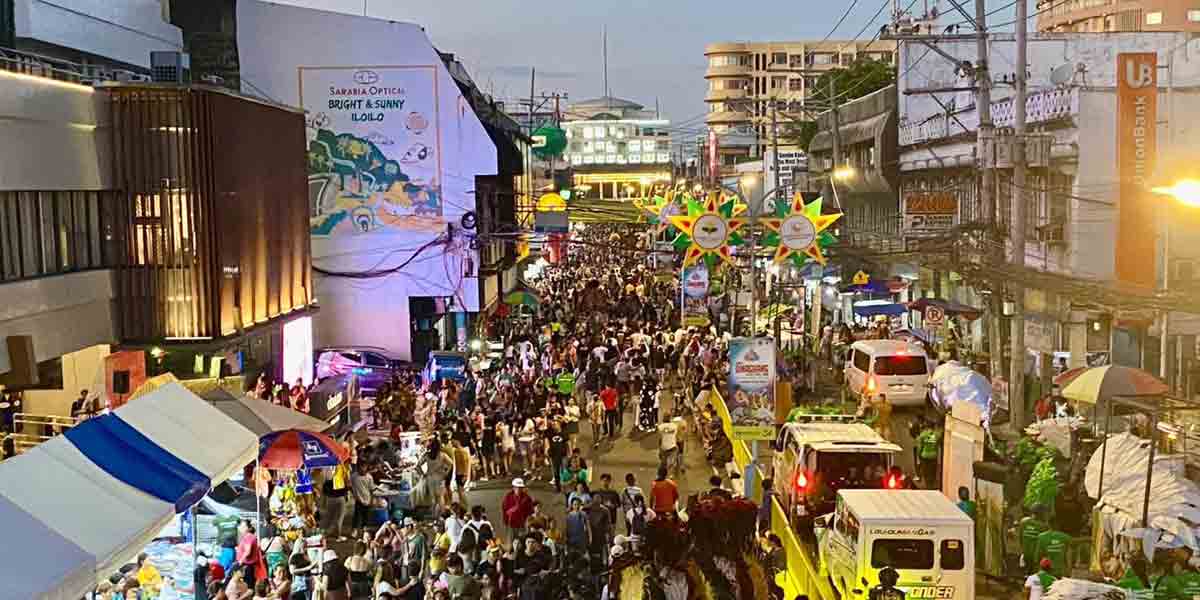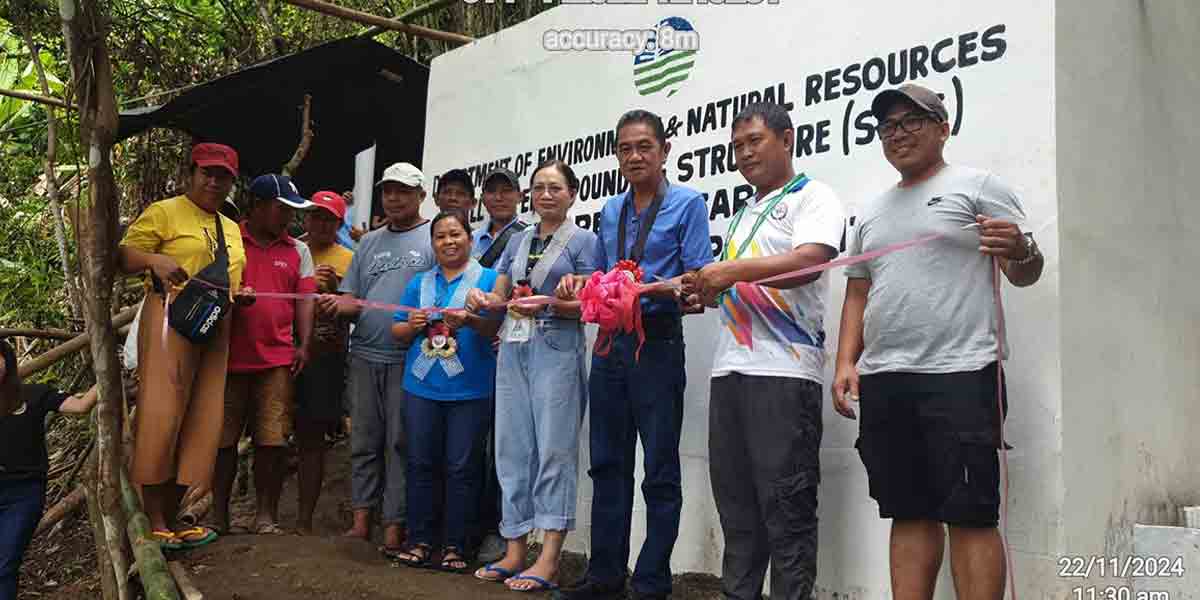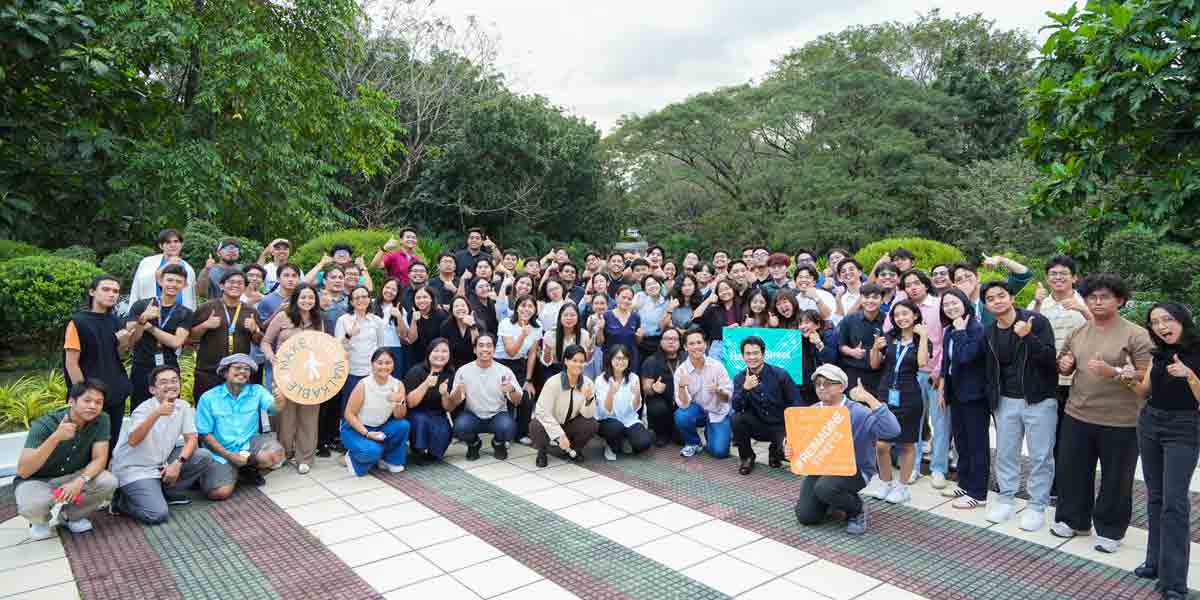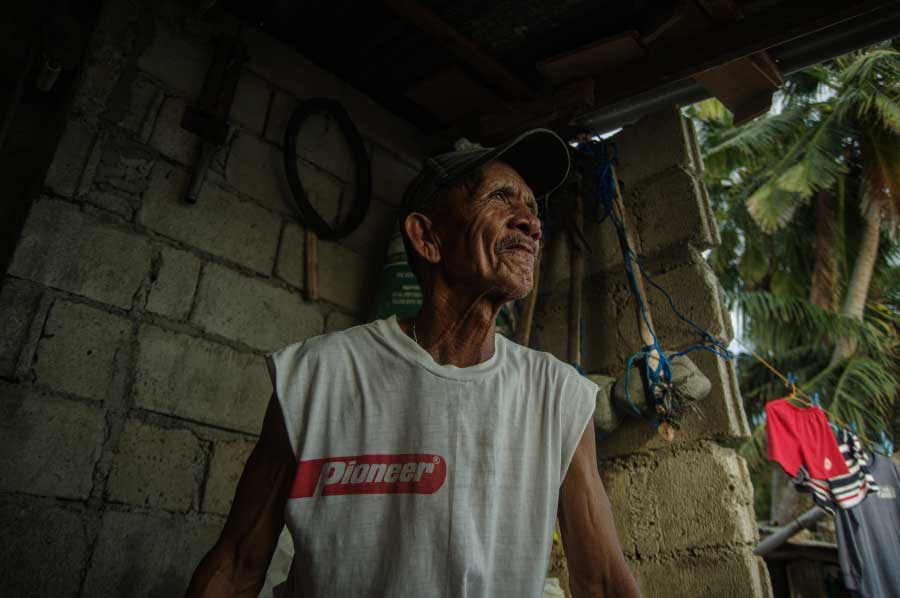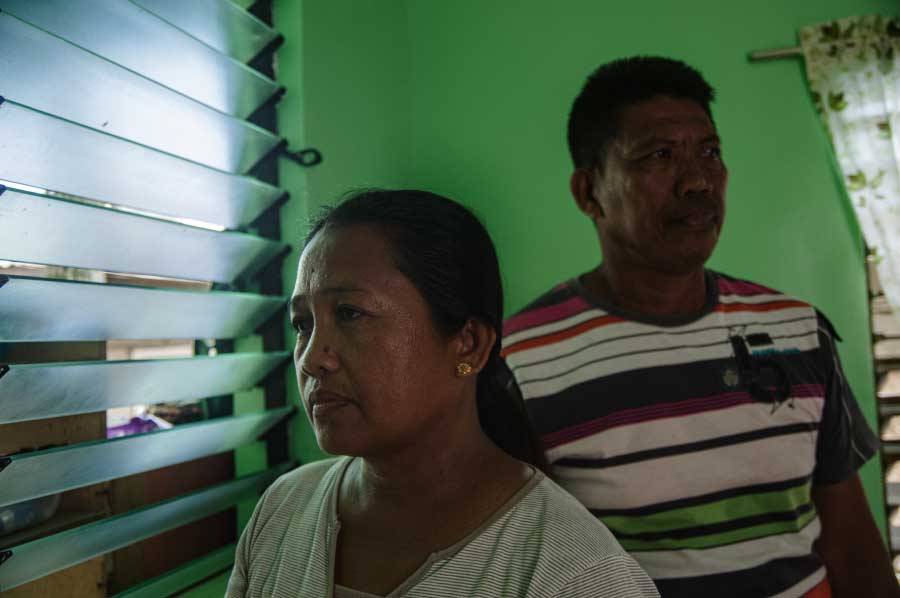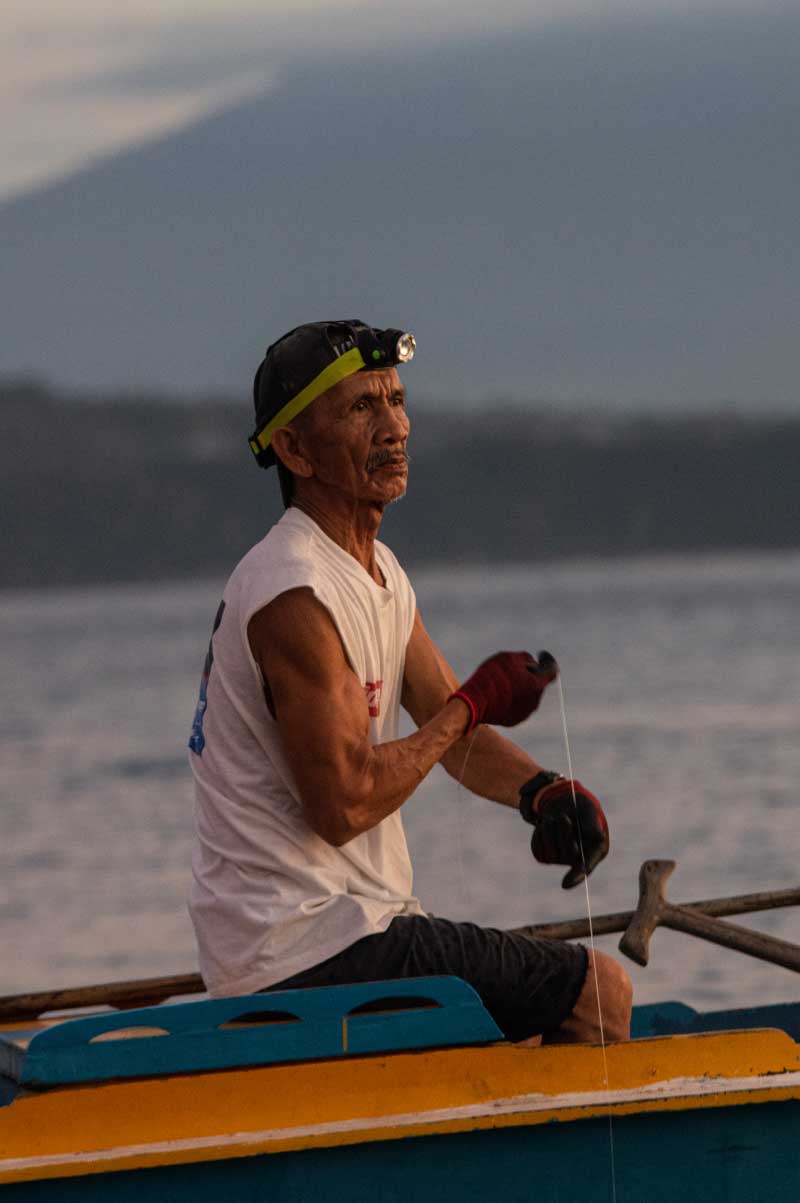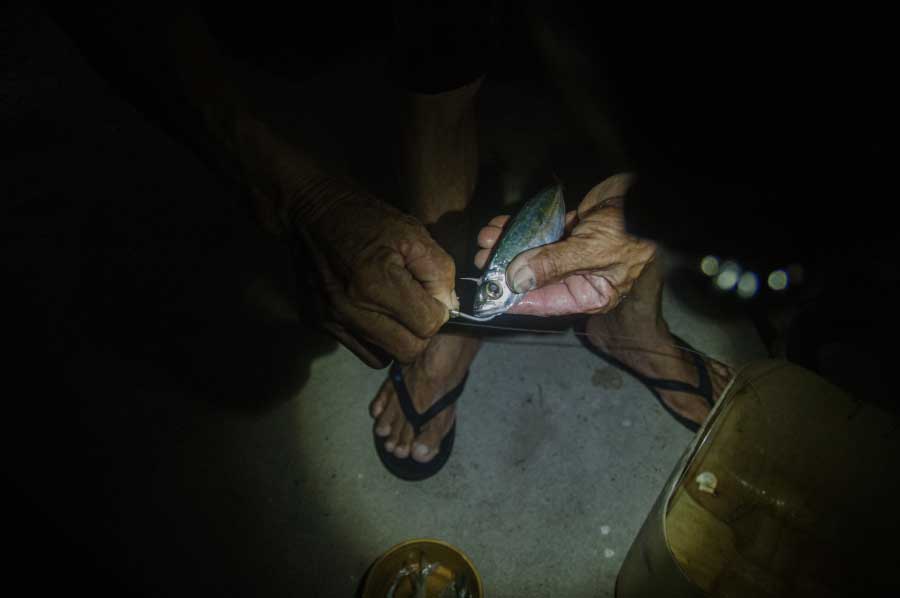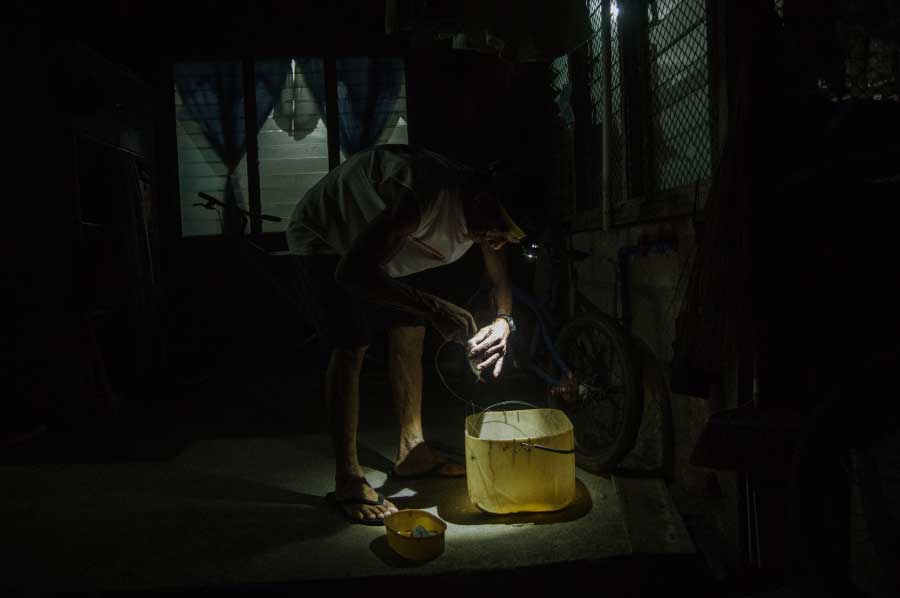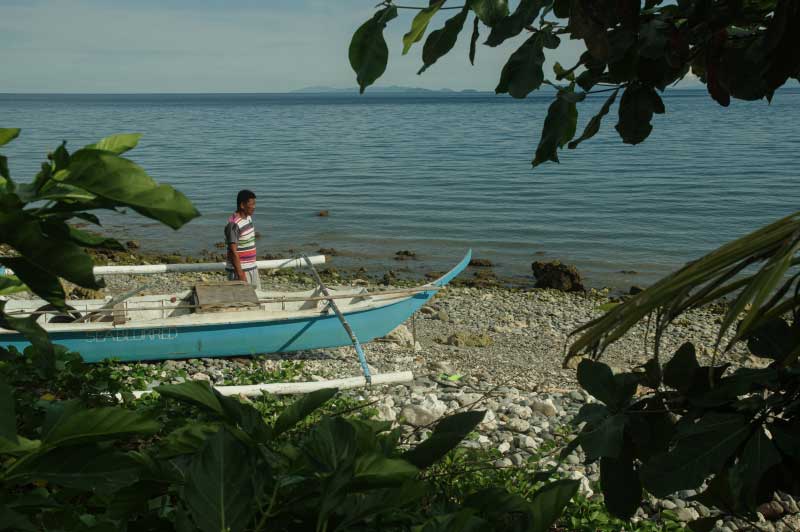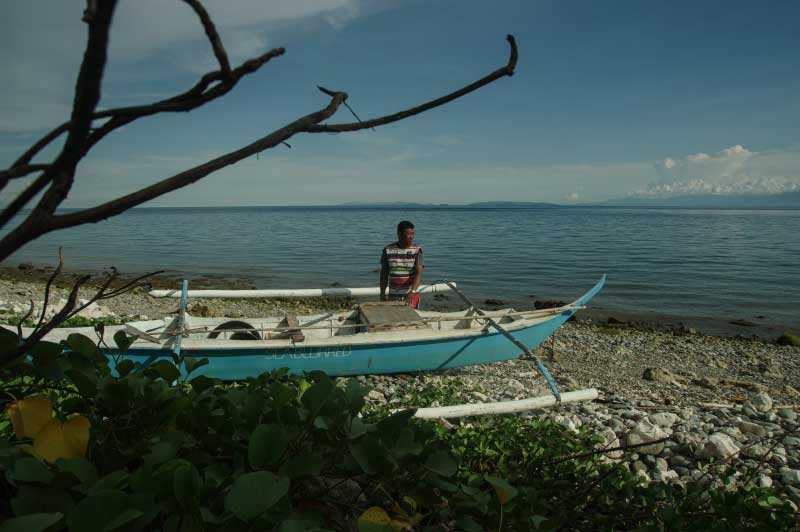Text by Cherry Salazar
Photographs by Larry Monserate Piojo and Dan Buenaventura
As fishers in Batangas City come to terms with the destruction of their livelihood because of gas projects, a few refuse to leave the life they’ve always known.
BATANGAS CITY — For generations, fishing was not only a livelihood but also a way of life for many Filipino families. Today, the number of fishers is dwindling and only few remain.
Raymundo Cepillo, 68, of Barangay Ilijan and Nestor Asi, 50, of Barangay Dela Paz owed their family’s living to the bounty of the sea. They built their homes near the coast, where the broad, blue sky morphed into a drapery of vivid oranges and purples late in the afternoons. They raised their children and grandchildren in the company of waltzing winds and waves. But they know the tides are changing.
Their old rural communities are becoming more and more urbanized, with three power facilities looming over the once-quiet coastal villages. The Ilijan Power Plant has operated for two decades, while an import facility for liquefied natural gas and another power plant are being constructed.
An old tale says fishermen could tell weather changes by the scent of the sea, the appearance of the sunset, and the movement of the currents. This time, though, Cepillo and Asi are not so keen on navigating new waters and casting wider nets. They understand fishing, as they know it, will inevitably come to an end.
Still, they would rather remain fishers, like their forebears.
These are the tales of two fishermen in Batangas City, whose resolute hearts refuse to abandon their small boats.
Raymundo Cepillo
Like many male residents in Ilijan village, Raymundo Cepillo toils in construction projects.
Now 68, Cepillo should be retired and spending time at home, but money has been hard to come by. This was especially true in recent years, Cepillo observed, when fish catch declined as gas projects operated in their community.
The Ilijan Power Plant — one of five natural gas-fired power plants supplying 27 percent of the Luzon grid’s power requirement — has been operating in the village for two decades. Currently, two more infrastructures are being built: Linseed Field Corp.’s import terminal facility for liquefied natural gas (LNG) and Excellent Energy Resources Inc.’s 1,700-megawatt power plant.
Advocates have been pushing for the suspension of LNG projects due to their adverse, irreversible environmental impacts and the imported fossil fuel’s supposed impracticality in the clean energy transition.
To residents, LNG projects provide employment as much as they disrupt the livelihood of local fisherfolk.
After the day’s hard labor, Cepillo, born from a generation of fishers, would prepare for an evening trip, hoping for a big catch. He would be lucky to haul enough for the family’s dinner. Luckier, if he finds the rarer tanigue (Spanish mackerel) that he could sell for an even rarer thousand or so pesos.
Cepillo understood that the days of good catch were long gone. Still, no one can stop a fisher from heeding the call of the sea.




Laughing, he told PCIJ in September 2022 that the scarcity of fish is comparable to a child graduating from college. “Tapos na ng college ang isda, may alam na. Hindi na umuwi! (The fish have graduated from college. They no longer come back home!)” [Photograph: Larry Monserate Piojo]



Nestor Asi, 50, was a third grader when his father, who came from a lineage of fishers, first took him out to sea.
They had no motorized boats then and used only small fishing boats with oars. They did not even go far from the coast, Nestor said. But he could never forget how happy he felt with their first haul together.
Since then, Nestor has been chasing the bounty offered by the vast waters.

They would also get sacks of dulong (silverfish), which Nestor’s wife Yolanda would ferment into bagoong (fish paste) to sell.
“Gustong-gusto ko laang mangisda pagka gayon, madaming huli, (I really enjoy fishing especially when the catch is plenty),” Nestor said. “‘Yung aking mga kapatid, nayayakag ko pang ‘Tayo’y mangisda, tayo’y madaming nahuhuli’ (I get to persuade my brothers to join me, ‘Let’s go fish. There’s plenty of fish!’)”
Fishing was a major livelihood in the coastal barangay of Dela Paz. Nestor’s earnings were enough for his then growing family. But with two children now in college and fewer fish to catch, Nestor finds himself at the deep end, and his wife is forced to take up the cudgels for the family.
Yolanda, 47, worked odd jobs to augment Nestor’s dwindling income: doing the laundry and ironing, farming coconuts, peddling vegetables, kilning coal, and handcrafting brooms.
“Nangungutang kami para magkasya ‘yung budget. Siyempre, hindi naman nasasabi na hindi magkakasakit ang anak… ‘Di ‘pag nagkapera, saka magbabayad (We borrow money when we don’t have enough in our budget. You can never anticipate [when you’ll need funds] when your child gets sick… When we get to save some money, that’s when we pay our debts),” said Yolanda, who is now a barangay health worker. The Asi family also has a small sari-sari store in their home.

Many fisherfolk started selling their boats, resorting instead to construction work or blacksmithing. But Nestor kept his, even if it meant having to borrow money he would struggle to repay for needed repairs.
“‘Yung kanyang bangka, palit kami nang palit. Pag nasira ‘yun… mag-aadhika kami kung paano bumili ulit ng isang bangka para siya’y may pang-hanapbuhay (We keep replacing his boat. If it gets broken, we will plan how to save enough money to buy another one so he could continue fishing),” said Yolanda.
On good days, Nestor would bring home two kilograms of fresh fish, enough for one meal for his family. On bad days, he would bring home six pieces of tulingan. On worse days, none.
Those days were becoming more frequent.
Yolanda has been encouraging her husband to take on other jobs, even part-time or contract work. This often causes a rift in their marriage. Nestor insists on fishing.
“Nagkakagalit nga kami doon sa parteng ‘yun. Ayaw talaga niya iwanan ang dagat (We argue because of that. He really doesn’t want to stop fishing… He keeps hoping to get a good catch whenever he ventures out to sea),” said Yolanda. “Umaasa siya na lagi siyang may mahuhuli.”
“Kung ako’y tumigil sa laot, e di lalong walang mahuhuli (If I stop, then all the more we won’t catch any fish),” Nestor replied.
While he keeps longing for the glorious old days, Nestor could never allow his son to go with him out to the sea, like his father once did.
“Ayaw ko nang matuto ang aking anak (I don’t want my son to learn to fish),” he said, dissuading his son from continuing the family’s trade. “‘Ka ko, diyan ka sa pag-aaral (I always remind him, focus on your studies).”
Like a fish caught in a line, tugged by some force he could not fight, Nestor knew: the life he lived may be destroyed, but his hope in the sea will not be defeated. –PCIJ, March 2023


